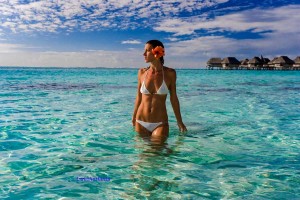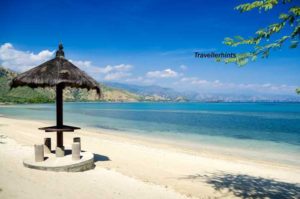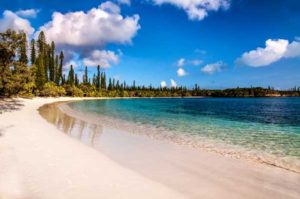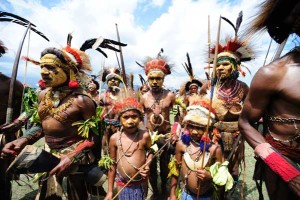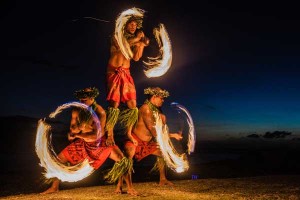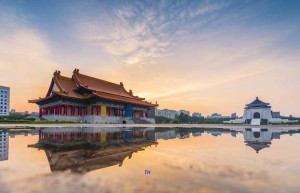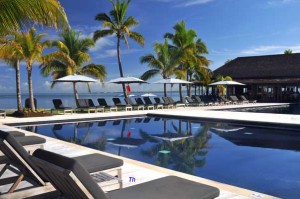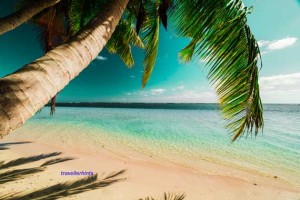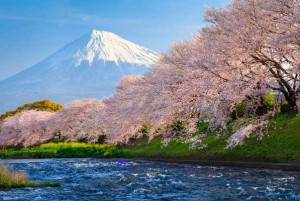The Pacific Islands is a broad term for the archipelagos in the Pacific Ocean, divided geographically into the major groups Micronesia, Melanesia and Polynesia. This region covers over 15% of the earth’s surface. There are over 2.3 million people spread out over tens of thousands of islands of various sizes.
Islands are typically continental, like Japan, or oceanic, as in the Hawaiian Islands.
Several countries in this region neighbor Australia, with a multitude of Polynesian islands extending far into the Pacific Ocean. The continental islands tend to be more mountainous, with more nutrient-dense soil, and are generally larger. The oceanic islands are largely volcanically formed, with many attracting the growth of coral reefs.
Generally, countries in the Pacific Ocean are remote and have limited natural resources, making them vulnerable and some developed areas are increasingly dependent on tourism.
This region is known for its fishing and boating, tropical beaches, and unique cultural crafts and customs. The ethnography of this region is incredibly unique. With over 20,000 islands in the region, each has something different to offer in terms of art, music and dance.
Japan, in the North Pacific, includes four major islands. There is immense forest coverage, reaching about two thirds of the country’s total land area. Japan’s population is about 127 million, yet is expected to decline. Japan has a rich cuisine, strong religious worship practices, and unified traditions, making it a culturally-enriching destination.
Southwest of Japan lies Taiwan, a smaller island with a vibrant culture, crowded cities, mountains and ecologically diverse forests. It has a very densely packed population, which is not typical for this region. Eggs and seafood are typical in Taiwan, and you can find almost any kind of fruit on the island.
East of Australia, in Melanesia is the French collectivity New Caledonia, which includes several sets of islands and archipelagos. It has a tropical climate typical of the region, with strong trade winds at times and a hot and humid summers and a shorter season with cooler, dry weather.
Approximately 270,000 people live in New Caledonia, with almost 40% of those belonging to the Kanak community and about 33% of European descent.
French is the official language and is widely spoken, even in smaller communities. New Caledonia has one of the strongest economies in the South Pacific, but has vast structural inequalities.
Fiji is one of the largest of Melanesia, with just under one million people, good roads system, and high levels of tourism. It is known for its white sand beaches and warm tropical climate, and is easily accessible from Australia.
Northwest of Australia, at the end of Indonesia is the nation East Timor. While Tetum and Portuguese are the official languages, there are almost 40 indigenous languages, and Indonesian is also widely spoken. They are known for having excellent organic coffee and handwoven cloths. They have a turbulent recent history, and have been established as an independent state since 2002.
Papua New Guinea is an incredibly diverse country, with over 800 official languages, and traditional cultural and agricultural practices dominating social life.
There are believed to be many undocumented flora, fauna, and peoples living in the interior of the country. As a developing country, Papua New Guinea has a fast-growing economy as it increases its exports of many natural resources.
East of New Guinea is the nation of Vanuatu, a volcanic archipelago with 82 islands. Vanuatu people depend on fishing and grow food in their gardens.
They have a growing population, which is putting a strain on resources. Since their founding in 1980, Vanuatu has depended on external funding and maintains ties with Australia and the E.U.
Hawaii, the 50th State of the U.S., is an archipelago of volcanic islands in the central north Pacific, with iconic surf culture, incredible parks and nature reserves, all public beaches. Waikiki in Honolulu on the island Oahu is one of the most famous beaches in the world, with the scenic Diamond Head peak to the south.
There is something for everyone in Hawaii, from water sports, mountainous nature trails, beaches galore, and year-round warm weather.
Hawaii has a rich, vibrant culture, with fun, visual luaus and strong communities. The most visited islands include Hawaii (“the Big Island”), Oahu, Maui, and Kauai.
In addition to those listed above, there are a plethora of smaller island states and nations throughout the Pacific Islands.
Many have tropical climates, with citizens living off the land in rural communities living according to long-standing traditions.
The Pacific Ocean leaves a lot to explore and experience from the volcanic islands, rich forests, world-class cities, rural farming communities, and more.
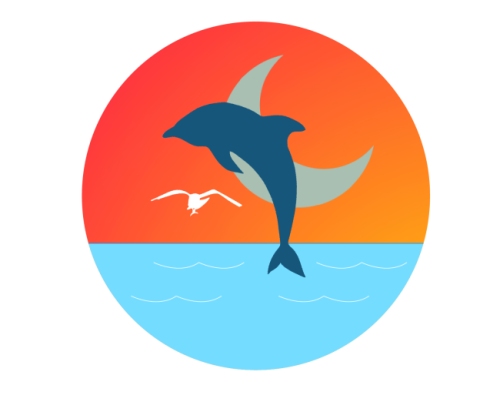 TravellerHints!
TravellerHints! 


